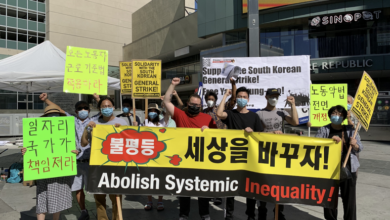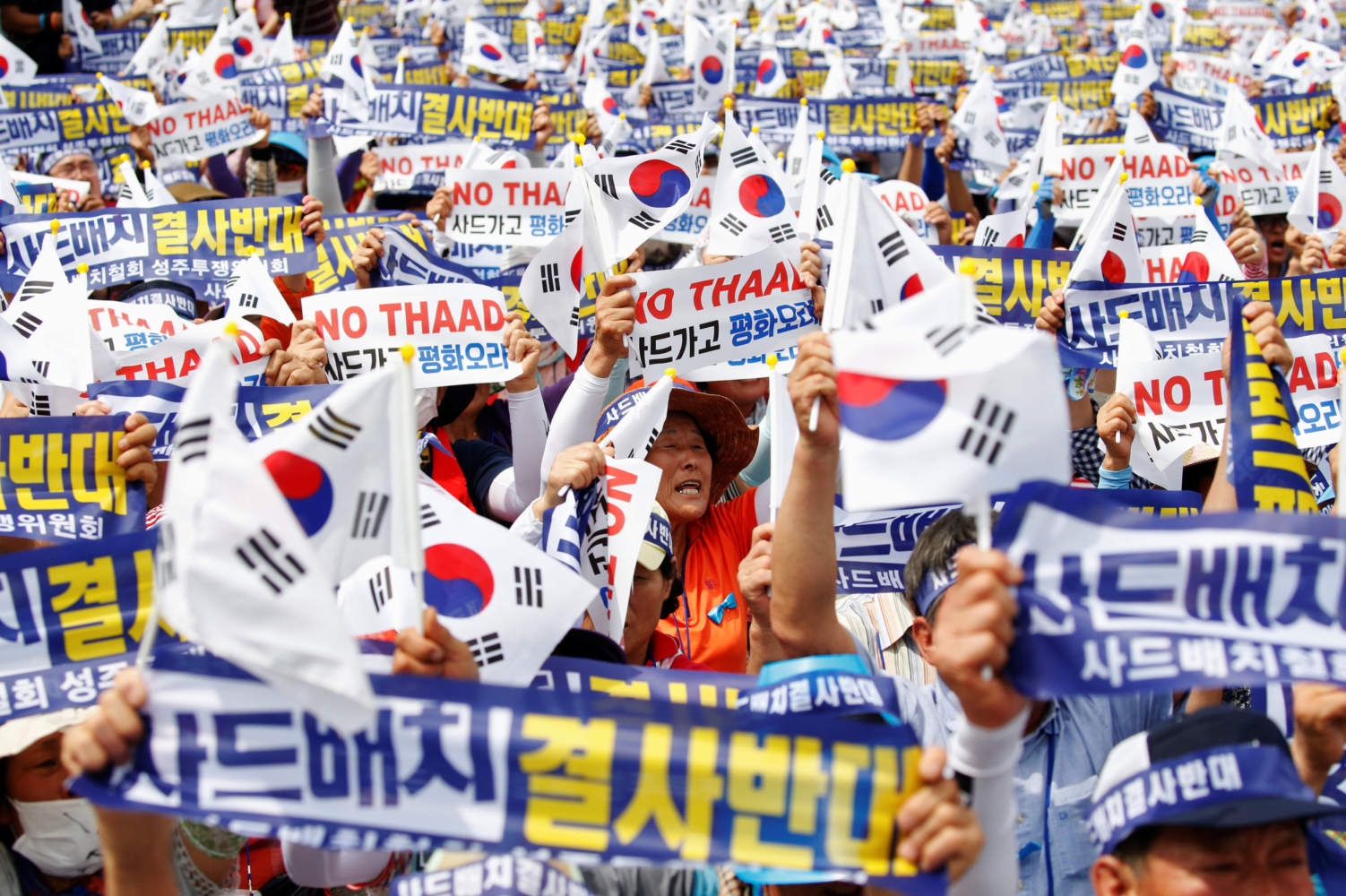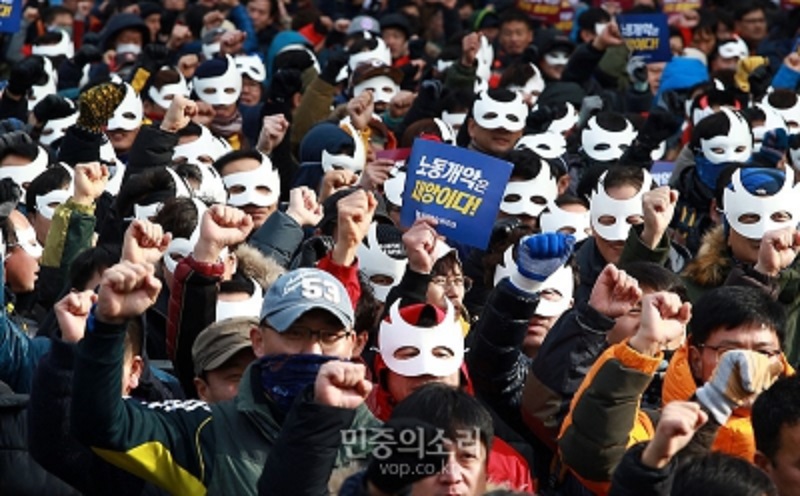In the middle of the night on Feb. 9, Korean National Intelligence Service agents raided the homes and offices of peace and social justice activists under the pretext of a vague law known in South Korea as the “National Security Act/Law.”
The Asian Human Rights Commission wrote Feb. 10 that the organizations were “particularly targeted” due to their goals of achieving a peace treaty to unify Korea and their stance of removing all U.S. and foreign troops from Korea.”
Since 1948, South Korea has used the National Security Law to suppress dissent and censor socialist ideology through means such as banning books and stifling freedom of expression about North Korea.
The U.S. and South Korea have close military ties and have been working together to finalize a huge Free Trade Agreement.
Over the weekend of Feb. 11-12, CIA head and former Afghanistan military commander David Petraeus traveled to South Korea to visit with President Lee Myung-Bak, NIS director Won Sei-Hoon and Defense Minister Kim Kwan-Jin. According to reports, they discussed “developments” in North Korea.
The continued presence of U.S. military troops and bases in South Korea as well as the Free Trade Agreement have been met with resistance by the working people of Korea. Despite this resistance, Myung-bak, the conservative president of South Korea, has shown his willingness to use the NSL as a dictatorial tool to smash growing movements that are fighting against major U.S.-backed interests.
Members of the organization Solidarity for Peace and Reunification of Korea seem to have been the primary target of the raids, during which documents and computer equipment were seized from several offices in Seoul as well as from the home of SPARK Secretary General Hy-ran Oh.
A big part of SPARK’s work is the fight against the construction of the U.S.-Korean Naval Base on Jeju Island in the south of the peninsula. The home of a staff member of SPARK was raided in the Gangjeong village of Jeju Island by the NIS. SPARK has played a leading role in the fight against the construction of the naval base, which the government has pursued despite the wishes of the Gangjeong and Jeju Island villagers.
Eyewitness Jeju
This writer recently visited Gangjeong in Jeju and saw firsthand the movement to stop the construction of this naval base by villagers who want nothing more than the right to determine the fate of their island. They are fighting for the right to live in peace and to protect their island, considered to be one of the “seven new wonders of nature.”
If the construction (or as villagers say, the “destruction”) continues, the Jeju naval base will be home to the U.S.-made Aegis Combat system and will be big enough to hold multiple nuclear armed U.S. Trident submarines. With the base being just 300 miles off the coast of China, the safety of the entire region is being put at risk by the aggressive actions of the Pentagon.
The White House and the Pentagon have publicly professed their aim to secure and expand their interests in Asia. On Jan. 5, President Obama unveiled a new Department of Defense budget that cuts costs by slashing benefits for employees of the DoD while also emphasizing a shift in focus to China and the east by expanding U.S. military presence in the region. Weeks later, Obama mentioned China in his State of the Union address, warning the country to “play fair” in the world market.
Myung-bak fears that the struggle in Jeju to stop the naval base construction is gaining international attention. In what is a shocking testimony to the world on how little he cares about the wishes of the Korean people, Myung-bak has illustrated with these raids that fighting for peace and sovereignty in Korea is a violation of “national security.”
When I was in Gangjeong, organizers and villagers received word that a senior researcher from Amnesty International was expected to visit the village soon to investigate the human rights abuses of anti-naval base protesters at the hands of the South Korean security forces. Such an investigation might expose Myung-bak as a defender of the U.S. empire over the rights of his own people.
U.S Troops Out of Korea!
Save Jeju Island! No Naval Bases!





